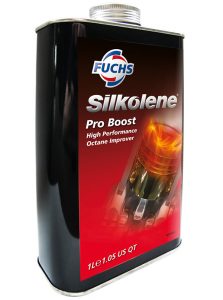How can modern fuels damage motorcycle engines & how to prevent this?
This week, with the continued increase of motorcycles with fuel related damage coming through our doors at mono motorcycles; we thought we would give you an insight into what causes the problems with modern fuels & how to avoid them.
In our ever expanding quest for faster, more powerful & fuel efficient vehicles as well as the pressure from global warming & zero emissions; the fuel companies are looking at more sustainable resources, yet still having to feed our high compression powerful cars & motorcycles.
Therefore, what is causing the damage to motorcycle engines & why is it causing more damage to some motorcycles more than others?
The ingredient which is damaging our fuel systems is ethanol.
In the UK our unleaded fuel is mostly E10. E10 is the mix of ethanol to gasoline 10 parts ethanol to 90 parts gasoline. Ethanol is a plant based “Biomass” This biomass is turned into ethanol & added to fuel to increase the octane rating by oxygenating the fuel. This means lower grade fuels can be blended to cope with modern engines.
Imagine pouring half a bag of sugar in your fuel tank, this is what is basically happening when the fuel goes off, hence the sticky gunge which ends up damaging the injectors, pump & ruining your carbs.
Here is a shocking fact. Modern ethanol fuel starts to go off the moment it goes into your fuel tank. A sealed petrol can kept in a cool dark place can last 6 months before it starts to degrade, however in your vented motorcycle fuel tank, it can be as little as six weeks before you could start to see issues.
Therefore, what is going on inside your fuel tank?
Well, it’s all to do with evaporation, The highly volatile gases evaporate first, & these are the gases which aid cold starting. Once these volatile gases have evaporated the fuel will take on a denser form, causing the mixture to become richer, fouling plugs,& causing rings & valves to stick.
The damage continues the longer the fuel is left. The stale fuel will start to generate carboxylic acid which starts to attack the rubbers within the fuel system making the rubber become soft & sticky. It will also eat its way through alloy & steel if left long enough.
This is not a new problem. Fuel has always gone stale if left long enough, long before the use of ethanol. The reason it has become worse is ethanol is hygroscopic, attracting moisture & speeding up the oxidation process.
We recently recommissioned a motorcycle which had been standing for 8 years & although the tank was dry, there was a small amount of fuel in the carbs & fuel lines. The lines broke up from the inside & the jets were all green. Although we stripped & replaced all the parts from inside the carbs, we struggled to get the motorcycle to run as it should.
Another motorcycle we have had in the workshop this week as a non-start was a Honda Fireblade. Unused for a few years, the fuel pump & its lines were completely destroyed.
However, what can we do to help to slow the damage?
Apart from riding your motorcycle more often so you are constantly filling your tank, you could use a good quality fuel stabiliser which will help such as Silkolene Pro Boost.
https://www.silkolene.com/motorcycle/fuel-additives/pro-boost/
Some fuel stations “super unleaded” petrol contains none or very low ethanol content such as Esso Synergy Supreme+ Unleaded 97.
How do you know if your fuel is still good or has gone stale?
There are a few simple ways you can check to see if your fuel good your fuel is.
First, give the fuel a sniff. If you open the fuel cap & you can see vapor coming from the cap, you are good to go.
If you sniff the fuel and it smells slightly sweet or like varnish, this is a sure sign things are on the turn. As the fuel becomes older the smell will go from varnish to a heavy whiff which will make your head spin!
Another way to tell is colour. Good fuel should be almost clear unlike stale fuel which will go very dark & heavy over time.
If you are concerned about the fuel in your motorcycle having damaged the tank, carbs or lines, then do give us a call & discuss your repair options. T: 01243 576212 / 07899 654446 or contact us via our contact page.




